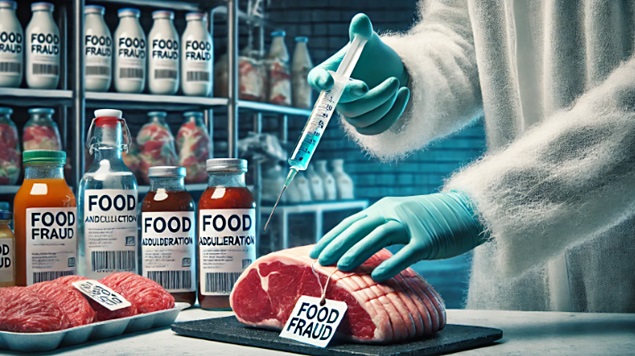2593

Food Fraud, Traceability, and Illegal Imports Among Top EU Concerns in January
FoodSafetyNews reports that counterfeiting, traceability issues, and illegal imports were among the suspected cases of food fraud and non-compliance recently discussed by EU member states.
Hundreds of Cases from the Start
A total of 220 issues were reported in January 2025, down from 248 alerts in December 2024 and 277 in January 2024.
These reported incidents involve potential fraud. Non-compliance can trigger investigations by national authorities in EU member states. The details come from a monthly report published by the European Commission.
The data includes cross-border fraud alerts shared among members of the Alert and Cooperation Network (ACN) and collected from the Rapid Alert System for Food and Feed (RASFF), the Administrative Assistance and Cooperation Network (AAC), and the Food Fraud Network (FFN).
Covered categories include food, animal feed, food contact materials, farm animal welfare, plant protection products, and veterinary medicinal products, particularly where residues or contaminants enter food and feed chains.
The objectives are to support national authorities in establishing risk-based controls, combat fraudulent and deceptive practices, assist the food sector with vulnerability assessments, and help identify emerging risks.
Main Categories of Concern
A total of 63 alerts involved fruit and vegetables, mostly due to pesticide residue non-compliance. The "other/mixed food products" category ranked second with 21 alerts, while dietary foods, food supplements, and fortified foods were third with 20 notifications.
Examples of Raised Issues
Most problems were uncovered through border inspections or market surveillance. In 22 cases, the issue was detected through a company’s internal checks, while consumer complaints led to 12 alerts.
In January, three alerts involved the United States:
- Tartrazine in a pickled snack,
- Metallic magnesium in food supplements, and
- Tetrahydrocannabinol (THC) in organic hemp seed oil.
Product tampering cases included sunflower and other vegetable oils in olive oil from Greece and Italy. Alleged food fraud examples included undeclared pork in chicken sausages and added water in tuna.
Ethylene oxide was detected in white pepper, ground cardamom, and paprika from Turkey, and xanthan gum from China.
Record incidents of mislabeling involved gluten in gluten-free gummies and buckwheat, and lactose in a dairy spread labeled lactose-free.
Other notable issues included suspected document forgery for Romanian lamb, unclear traceability of Danish butter, illegal imports, and unauthorized operators. Several products skipped border checks altogether.
Chicken meat from Belgium was deemed unfit for human consumption, while temperature control issues were flagged for fish and meat in the Netherlands.





